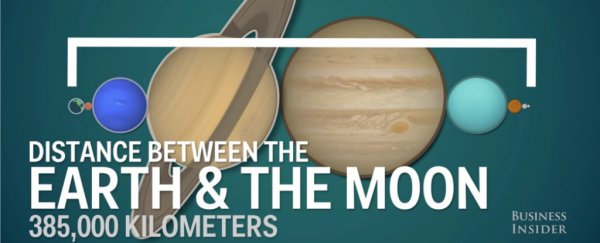We all know that, in the grand scheme of things, Earth and everything on it is pretty tiny. But being aware that the Universe is a big place is one thing, and really understanding the scale of it is something else entirely. Unfortunately, many of us won't make it into space to get that kind of extraterrestrial perspective first-hand, which is why this Business Insider animation is so awesome.
To start with, the video takes us right down to the size of a proton - you know, that tiny, subatomic particle inside the nuclei of atoms. We then pass through some of the spectacularly compact aspects of the human body (hello, DNA) before seeing how all of that compares to the rest of the world, the Solar System, the Milky Way galaxy, and finally the observable Universe… all in just 3 minutes.
A lot of things, say, the size of the planets orbiting our Sun, you may be pretty familiar with. But there are definitely a few surprises when you see those objects in comparison to everything else. For example, exactly how big Saturn is (!!) and just how far the distance is between Earth and the Moon.
Once we step outside our Solar System, things get even more trippy, with a visual demonstration of how large some stars can get - our seemingly giant Sun is a tiny pinprick in comparison to the red hypergiant Canis Majoris.
Zoom out even further, and you can see the incomprehensible distance that our little lonely space probe, Voyager I, has travelled from Earth. But hold onto your seats here, because all of that pales in comparison to the size of 1 light-year. And even that feels small when you see how far away the Sun is from its closest solar neighbour, Proxima Centauri.
Watch to the very end to have your perspective of the Universe, and our place in it, changed forever.
If all of this has left you feeling totally small and insignificant, don't worry - consider how lucky we are that somehow in this giant Universe, we've ended up living on this tiny, habitable speck of a planet. And remember that we're made up of the very same elements that form those unimaginably big stars. We may be small, but we're mighty.
